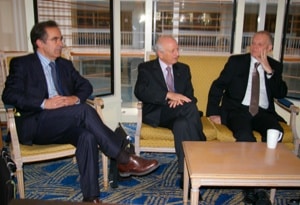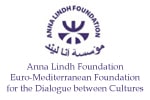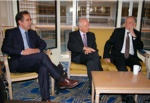 The program, which was officially approved by the representatives of the forty-three countries of the Union for the Mediterranean (including, among others, the EU states, Palestine, Israel, and Turkey) emphasizes the desire for connection between the peoples on both shores of the Mediterranean, in order to combat negative perceptions and promote dialogue in the region.
The program, which was officially approved by the representatives of the forty-three countries of the Union for the Mediterranean (including, among others, the EU states, Palestine, Israel, and Turkey) emphasizes the desire for connection between the peoples on both shores of the Mediterranean, in order to combat negative perceptions and promote dialogue in the region.
One of the historic achievements of the French Presidency of the EU, which took place in the context of the EuroMed Year for the Dialogue between Cultures, was the reactivation and expansion of Mediterranean cooperation through the ‘Union for the Mediterranean’, a political framework involving forty-three EuroMed countries, as well as the European Commission and the Arab League.
The Paris Summit for the Mediterranean (July 2008) and the EuroMed Ministerial Conference in Marseille (November 2008) were opportunities to reaffirm the importance, for the peoples of the North and South of the Mediterranean, of the common sense of belonging in the political process, with the recognition of the EuroMed Anna Lindh Foundation. As a central actor in the Union for the Mediterranean, this Foundation has a regional mandate to attempt to bring peoples closer, to foster mutual understanding and peace.
The Anna Lindh Foundation
 Created in 2005, the Anna Lindh Foundation is the first joint institution of the EuroMed Partnership. It is a unique organization created by the governments of the region and acts as a network of more than two thousand civil society organizations – NGOs, universities, local authorities, youth groups – present in all countries of the Union for the Mediterranean.
Created in 2005, the Anna Lindh Foundation is the first joint institution of the EuroMed Partnership. It is a unique organization created by the governments of the region and acts as a network of more than two thousand civil society organizations – NGOs, universities, local authorities, youth groups – present in all countries of the Union for the Mediterranean.
The President of the Foundation, André Azoulay, is a leading figure in the Arab world and the Mediterranean region, having notably played an active role in the Middle East Peace Process and having been globally recognized for his efforts in the dialogue between Islam and the West. After his unanimous election as President of the Foundation in April, Mr. Azoulay initiated the development of the Foundation’s new strategy, which is focused on large-scale actions in fields impacting mutual perceptions in the region, notably media, education, and culture.


